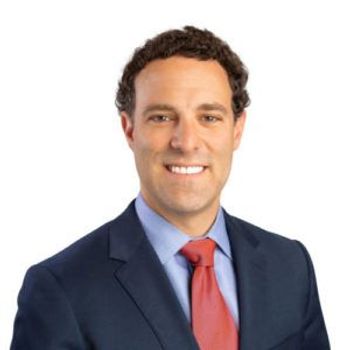
Cedars-Sinai/Optum: Study: patients do better when physicians follow computerized alerts
When physicians follow computer alerts embedded in electronic health records, their hospitalized patients experience fewer complications and lower costs, leave the hospital sooner and are less likely to be readmitted, according to a study of inpatient care.
When physicians follow computer alerts embedded in electronic health records, their hospitalized patients experience fewer complications and lower costs, leave the hospital sooner and are less likely to be readmitted, according to a study of inpatient care.
The research examined alerts that popped up on physician computer screens when their care instructions deviated from evidence-based guidelines.
The alerts were based on an initiative called Choosing Wisely, which identifies common tests and procedures that may not have clear benefit for patients and should sometimes be avoided. For example, an alert might pop up on the screen if a physician orders a CT scan when it’s unnecessary and likely won’t improve the patient’s outcome. The alert would serve as a reminder that the order could expose the patient to unnecessary radiation and costs.
The Choosing Wisely alerts were backed by the American Board of Internal Medicine Foundation and created by various physician subspecialty societies.
“Sometimes the best care for certain patient conditions means doing less,” said
Many leaders in the healthcare industry have targeted unnecessary care as a means of improving patient safety while cutting wasteful spending. One 2010 estimate from the Institute of Medicine found that “unnecessary services” contribute to about $210 billion in wasteful healthcare spending in the United States each year.
The study, conducted by investigators from Cedars-Sinai and Optum Advisory Services, was published in
For 26,424 of the inpatient visits studied, the treating physician followed either all or none of the Choosing Wisely guidance. In 6 percent of visits, physicians in the “treatment group” followed all triggered alerts; in the remaining 94 percent of visits, physicians in the “control group” followed none of the triggered alerts. An alert was triggered, for example, if a physician tried ordering a sedative for a sleepless older patient or an appetite stimulant for an older patient who was ill and losing weight. Sedatives can put seniors at risk for falls, bone fractures and car accidents, and appetite stimulants can put seniors at risk of fluid retention, stroke and death.
The authors found a significant difference in health outcomes and costs between the two groups. For patients whose physicians did not follow the alerts, the odds of complications increased by 29 percent compared to the group whose physicians followed the alerts. Likewise, the odds of hospital readmissions within 30 days of the patients’ original visits was 14 percent higher in the group whose physicians did not follow the alerts. Patients of these physicians also saw a 6.2 percent increase in their length of stay and an additional 7.3 percent — or $944 per patient – in costs, after adjusting for differences in patient illness severity and case complexity.
“Sometimes doctors order tests that they think are in the patient’s best interest, when research doesn’t show that to be the case. Unnecessary testing can lead to interventions that can cause harm,” said
The authors acknowledge limitations to the study. Their strict definition of alert compliance, which excluded visits in which physicians followed some but not all alerts, limited their understanding of the clinical and financial impact of those visits. Additionally, the investigators were unable to measure the impact of specific alerts on outcomes to see if one alert was more significant than others. Finally, it is possible that physicians with better patient outcomes and lower costs are more likely to follow Choosing Wisely clinical decision support alerts, rather than proving a “cause and effect” relationship between following the alerts and better outcomes.
Disclosures: Optum is a licensed reseller of Stanson Health, including its Choosing Wisely alert content evaluated in this study. Cedars-Sinai is the major shareholder of Stanson Health and employs the company’s founders, Darren Dworkin, Cedars-Sinai chief information officer and stockholder of Stanson Health, and Weingarten, who is chairman of the board and stockholder of Stanson Health.
About Cedars-Sinai
Cedars-Sinai is a leader in providing high-quality healthcare encompassing primary care, specialized medicine and research. Since 1902, Cedars-Sinai has evolved to meet the needs of one of the most diverse regions in the nation, setting standards in quality and innovative patient care, research, teaching and community service. Today, Cedars-Sinai is known for its national leadership in transforming healthcare for the benefit of patients. Cedars-Sinai impacts the future of healthcare by developing new approaches to treatment and educating tomorrow’s health professionals. Additionally, Cedars-Sinai demonstrates a commitment to the community through programs that improve the health of its most vulnerable residents.
About Optum
Optum is a leading information and technology-enabled health services business dedicated to helping make the health system work better for everyone. With more than 135,000 people worldwide, Optum delivers intelligent, integrated solutions that help to modernize the health system and improve overall population health. Optum is part of UnitedHealth Group (NYSE:UNH). For more information, visit
Newsletter
Stay ahead of policy, cost, and value—subscribe to AJMC for expert insights at the intersection of clinical care and health economics.








